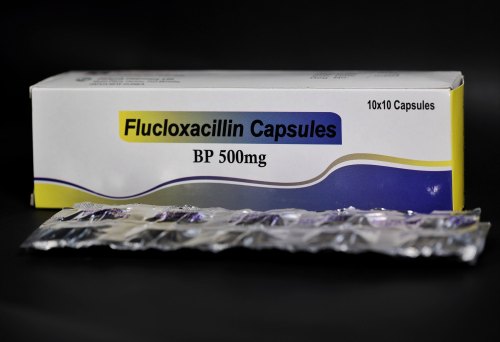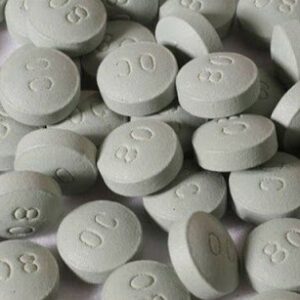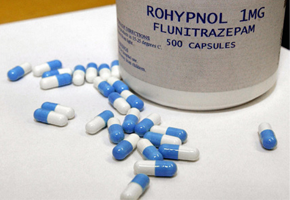Description
Flucloxacillin 500mg is a medicine belonging to the group of penicillin antibiotics that kills bacteria that cause infections. Flucloxacillin 500mg is an antibiotic that is usually used if it is known which bacterium is causing the infection (narrow spectrum antibiotic). It is prescribed for skin infections such as impetigo, inflamed eczema, boils, erysipelas and inflammation of the ear canal.
It is also prescribed for breast-feeding problems due to inflammation of the mammary gland and severe reactions of the body (sepsis) to infections, respiratory infections and meningitis.
How Is this drug Used And What Is The Dosage?
This drug comes in capsules. Your doctor will prescribe the correct dose for you. Swallow the capsule whole with some water, 1 hour before a meal or 2 hours after a meal. Divide the intake over the day and take it at fixed times. If you miss a dose, do the following: If it is more than 2 hours before your next dose, take the dose. If the time is shorter, skip the dose. A course of treatment lasts 5 to 14 days. Sometimes a single dose is given. Always complete the course, even if the symptoms of the infection have disappeared.
When should you not use Flucloxacillin 500mg?
If you are hypersensitive to any of the ingredients in Flucloxacillin 500mg you should not take this medicine. If you have myastenia gravis or problems with your kidneys, the use of Flucloxacillin is not recommended.
If you are taking other antibiotics, such as doxycycline, minocycline or tetracycline, you should discuss with your doctor whether Flucloxacillin 500mg is the right medicine to use. An interaction can occur that is not desirable with some infections (for example meningitis). If you are taking anticoagulants that inhibit vitamin K, such as acenocoumarol or phenprocoumon, your clotting needs to be measured extra, because the effect of the anticoagulation is enhanced. Be moderate in drinking alcohol. Flucloxacillin can be used safely during pregnancy and breast-feeding. You can just drive.
What are the possible side effects of Flucloxacillin 500mg?
Flucloxacillin 500mg has only a small chance of side effects. Only very rarely are the following side effects reported; nausea, vomiting and diarrhoea, pain in muscles and joints, fever and liver disorders. Skin rashes with spots and bumps are usually harmless but can be a result of hypersensitivity to Flucloxacillin. If you develop a rash, have your doctor check it.
Flucloxacillin 500mg is a penicillin family antibiotic. The active substance Flucloxacillin 500mg kills certain bacteria. This allows the bacterial infection to heal, and to resolve related symptoms such as pain, fever, swelling, redness of the skin, and other inflammatory reactions. Flucloxacillin 500mg is only available by prescription. Flucloxacillin 500mg is a penicillin family antibiotic. The active substance flucloxacillin kills certain bacteria. This allows the bacterial infection to heal, and to resolve related symptoms such as pain, fever, swelling, redness of the skin, and other inflammatory reactions. Flucloxacillin 500mg is only available by prescription.
Flucloxacillin 500mg consists of capsules to be swallowed whole with a glass of water. Take this medicine on an empty stomach, that is, one hour before, or two hours after a meal. Food reduces the effectiveness of this antibiotic.
Even if you feel better, finish the treatment. If you stop taking Flucloxacillin too soon, all bacteria will not be destroyed and the infection will return. Depending on your symptoms, the doctor will decide how long you need to take the medicine. Usually, this treatment lasts between five and ten days.
Flucloxacillin can be used in different ways. It can in particular be administered by injection in hospitals or be swallowed with a little water. In the latter case, it is advisable to swallow it one hour before any meal or two hours after taking the latter.
In addition, for an effective treatment, it is recommended not to stop taking this antibiotic even if the symptoms improve. This is because stopping flucloxacillin precipitously may cause the symptoms, bacteria, disease or inflammation treated to reappear. Hence the need not to interrupt treatment, regardless of the improvements observed.
In addition, it is also essential to follow the recommendations of your doctor and strictly comply with the prescribed doses. If side effects appear (vomiting, nausea, skin rashes, etc.), immediately consult your doctor and follow his advice and recommendations, in order to prevent any major problem.




Reviews
There are no reviews yet.